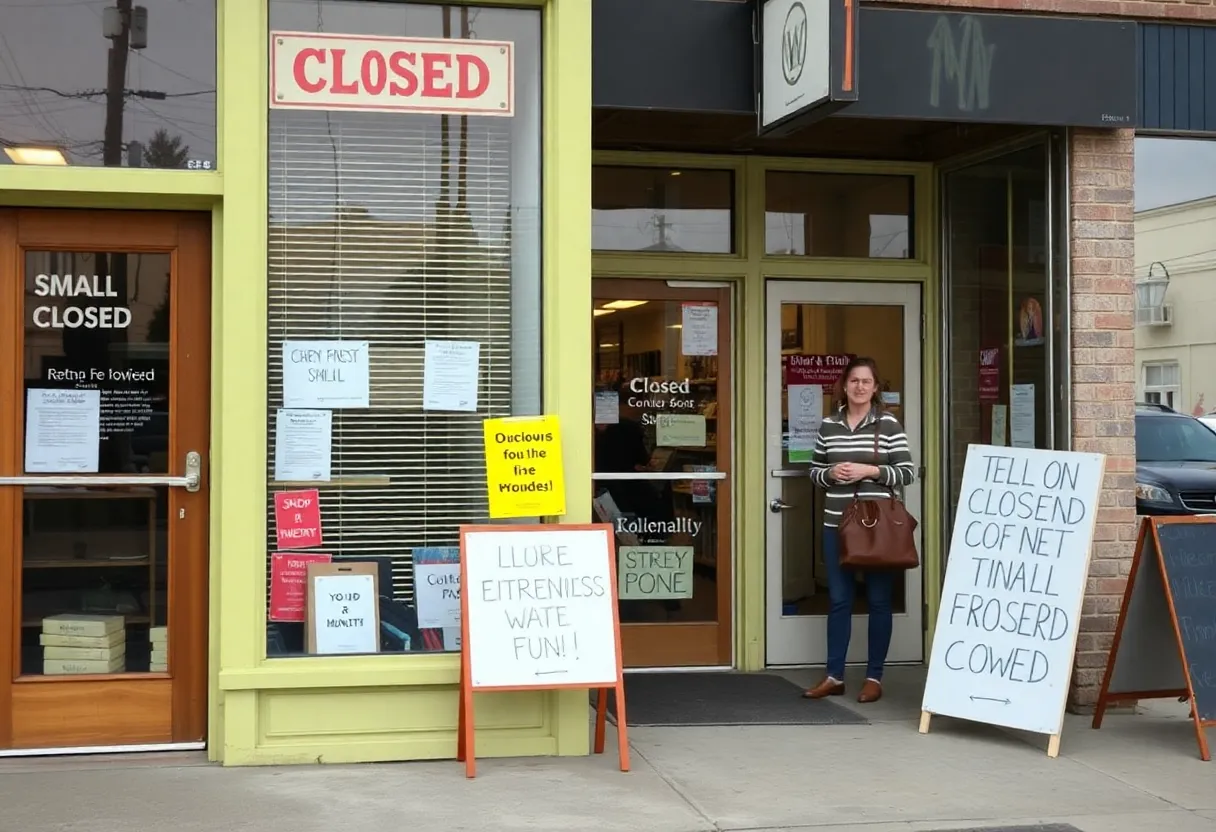News Summary
A recent WalletHub study has ranked Rhode Island as the worst state for startups in 2025, citing unfavorable business conditions and high unemployment. With its poor ranking in business environment, access to resources, and business costs, entrepreneurs are struggling to establish new ventures. The situation is compounded by a high failure rate for new businesses and increasing inflation, leading to significant local economic challenges. Policymakers are urged to implement strategies to attract and support businesses to avoid further economic decline.
Rhode Island has been ranked as the worst state to start a business in 2025, according to a recent study by WalletHub. This assessment analyzed 50 states based on 25 key indicators critical to the viability of startup businesses. The findings paint a troubling picture for entrepreneurs looking to establish themselves in Rhode Island.
Rhode Island received a poor overall ranking, landing at 50th place for its business environment. The state also ranked 40th for both access to resources and business costs. This combination of low rankings casts doubt on the state’s capacity to foster new businesses and attract investment.
In contrast, the top three states identified for startup viability were Florida, Georgia, and Utah. These states have been recognized for their favorable economic conditions, including lower corporate taxes and a more robust support structure for entrepreneurs. Following Rhode Island, Connecticut and New Jersey occupy the 49th and 48th ranks, respectively, highlighting a regional trend of challenging business environments in the northeastern states.
The current economic landscape in Rhode Island is further exacerbated by disappointing statistics regarding startup longevity. According to the study, approximately 20% of new businesses fail within their first year, a statistic that underscores the difficulties faced by entrepreneurs in the state. Furthermore, Rhode Island is experiencing a year-over-year increase in unemployment of 27%, suggesting that local economic conditions are deteriorating.
Local businesses are facing unprecedented challenges, with several notable closures highlighting the crisis. For instance, an award-winning restaurant recently announced it would close its Rhode Island location to relocate to Connecticut. This move indicates a broader trend of businesses seeking more favorable conditions elsewhere.
Additionally, the Old Canteen restaurant, a long-standing establishment, is being transformed into a wiener joint after being sold, illustrating the shifting backdrop of Rhode Island’s dining and hospitality sectors. This change reflects the mounting pressure that local businesses face and the shifts in consumer demand and cost of operation.
Experts emphasize the critical elements that drive successful business startups, which include a favorable tax climate, strong economic growth, accessibility to reliable workers and financing, and affordable real estate options. Unfortunately, Rhode Island’s current conditions fail to meet several of these criteria, pushing potential business owners to explore opportunities in more favorable states.
The issue of inflation has emerged as a significant concern for businesses operating in Rhode Island. Rising prices can limit discretionary spending among consumers and increase costs for businesses, compounding existing challenges. Many entrepreneurs are finding it increasingly difficult to maintain profit margins while managing escalating operational expenses, leading to a pervasive sense of uncertainty in the state’s business community.
As small businesses are the backbone of local economies, the poor ranking of Rhode Island poses significant long-term implications not just for entrepreneurs, but also for job creation and economic stability in the region. The trend of higher unemployment and business closures raises important questions about how the state can improve its environment for startups and retain those existing businesses that contribute to the local economy.
Overall, the WalletHub study serves as a wake-up call for policymakers and stakeholders in Rhode Island as they look to identify and implement strategies that can improve the climate for business startups in the state. Without proactive measures, Rhode Island may continue to struggle in fostering a vibrant economic landscape conducive to new business ventures.
Deeper Dive: News & Info About This Topic
- GoLocalProv: Another RI Business Closing
- Wikipedia: Rhode Island
- Providence Journal: Washington Bridge Closure Lawsuit
- Google Search: Rhode Island
- Boston Globe: Washington Bridge RI Lawsuit
- Encyclopedia Britannica: Rhode Island
- GoLocalProv: 10 Most Heartbreaking Business Closings
- Google News: Rhode Island Business Closures

Author: STAFF HERE PROVIDENCE WRITER
The PROVIDENCE STAFF WRITER represents the experienced team at HEREProvidence.com, your go-to source for actionable local news and information in Providence, Providence County, and beyond. Specializing in "news you can use," we cover essential topics like product reviews for personal and business needs, local business directories, politics, real estate trends, neighborhood insights, and state news affecting the area—with deep expertise drawn from years of dedicated reporting and strong community input, including local press releases and business updates. We deliver top reporting on high-value events such as WaterFire, Rhode Island International Film Festival, and Rhode Island Comic Con. Our coverage extends to key organizations like the Greater Providence Chamber of Commerce and Providence Warwick Convention & Visitors Bureau, plus leading businesses in finance and manufacturing that power the local economy such as Citizens Financial Group and Textron. As part of the broader HERE network, we provide comprehensive, credible insights into Rhode Island's dynamic landscape.





